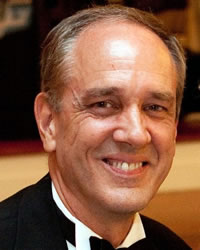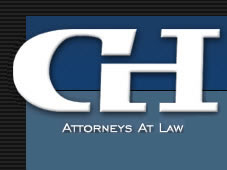I. INTRODUCTION
As the 1980s unfolded, South Africa prided itself as having the most tolerant press laws on the African continent.1 Against the recent social and political tumult of some of its neighboring nations, South Africa appeared relatively calm. But storm clouds of unrest loomed ominously on the horizon as the apartheid government of State President P.W. Botha came under increasing pressure from within and abroad to end its policies of racial separation. By mid-decade the winds of domestic dissent had stiffened, and the embattled government girded for the growing storm.2
To strengthen its position, the Botha government imposed increasingly severe limits on dissident elements of the population and on the press -- the latter of which antagonized the government by both reporting about the unrest and by editorializing against the growing oppression.
In this paper we will examine how the growing crisis in South Africa transformed various laws and government policies that affected the press, both directly and indirectly. We will briefly trace the history of government regulation of the press in South Africa, and review the press-related laws imposed by the Afrikaner government since its rise to power in 1948. The paper will focus on the last half of the 1980s, when press control and suppression of speech became an obsession with the Botha government as it struggled to maintain apartheid policies in the face of growing fears among the white minority government that the storm of black nationalism and international condemnation could not be contained. An attempt also will be made to put South African press restrictions into a more global and historical context by comparing them with those of other nations that from time to time have been faced with internal or external threats to their national security. Of particular interest will be parallels to restrictive measures imposed by the United States, whose constitutional guarantee of a press free from government interference holds the nation up as the bellwether of press freedom.
We will conclude with an examination of the positive changes under the government of F.W , de Klerk and, assuming no overthrow by coup, what the future might hold for that nation's media.3
II. A SOUTH AFRICAN ANALOGY
Any person, corporation, association, organization, or society who...knowingly prints, publishes, edits, issues, circulates, sells or offers for sale, or distributes, or has in his possession for the purpose of distribution, any book, pamphlet, ...or document of any kind, in which is taught, advocated, or advised the use of physical force, violence or physical injury to person or property, or threats of such injury, as a means of accomplishing any governmental, social, industrial or economic change in this state... shall be deemed guilty of anarchy and sedition... [And) the officers thereof shall be punished by imprisonment... for a term not exceeding.., twenty years.4
The government of South Africa over the last forty years has created one of the most regulated environments for the public discourse outside of the now-removed "iron Curtain." Censorship of all means of communication is codified in an assortment of legislation and executive orders that change literally, and often drastically, upon the midnight publication of the Government Gazette. Some of the restrictions are modeled on laws from other so called "conflict societies."5 Others are improvised as Pretoria perceives a need, and as the courts interpret legality. As of this writing, the restrictions on the publishing of "subversive statements" in South Africa are very similar to the one printed at the opening of this section.6 But the drafters of the statute above did not live in a "conflict society" like Israel, the Philippines, Lebanon, or Uganda. Nor was their aim to protect a minority ruling-class from domination by a super-majority. The statute above was enacted in Colorado, U.S.A. in 1953.7
Dr. A. S. Mathews, of the University of Natal, a leading expert on National Security in the South African dialogue also emphasizes society's need for security and the laws to insure it. In recent writings Dr. Mathews proposes dissolving the Pretorian security structure in transition to an ideal democracy. He sides with other commentators in advocating modification of the security laws to incorporate due process but maintains that restrictions on liberty will still be necessary to preserve authority in a "divided society."8 Or as Machiavelli declared: "[T]those republics which in time of danger cannot resort to a dictatorship will generally be ruined when grave occasions occur."9
Many modern governments in civil disarray have experience in balancing the security-liberty equation. The structure of regulation in South Africa can be compared to the transitional stages in, for example, Zimbabwe (formerly Rhodesia),10 Ireland,11 or Israel.12 The government of the United States has often pursued security through restrictions on civil liberties, and the costs and benefits are still murky. Perhaps what makes the United States different from so-called "conflict societies" is the richness of that debate and the persistent rebound of reason.
But given the similarities among many security laws, there must be more that distinguishes the subversion statute above, from the Media Emergency Regulations of South Africa.13 As the South Africa restrictions have a history of political construction, which we will discuss, so too did the subversion laws that have effected censorship in the United States. Though it requires some juggling of history, comparisons can be made between the United States and South Africa in the area of censorship grounded in national security.
III. HISTORY OF PRESS CENSORSHIP IN THE UNITED STATES
A. Seeds of Censorship
Most of the United States experience with censorship has occurred during times of war, either "hot'’ or "cold". Other nations exhibit similar patterns. Recall the media-government relationship in the Falklands war,14 or the Israeli Occupation.
When Thomas Jefferson came into the Presidency in 1801, he rode a wave of popular rejection of the infamous Sedition Act of 1798. Both Jefferson and Madison had adamantly opposed this persecution of the exercise of free speech.15 Nevertheless, in a confidential letter to Governor Thomas McKean of Pennsylvania, not long after the expiration of the act in 1801, President Jefferson complained of editorial attacks by the "Tory press." Jefferson agreed that since the First Amendment restrained the Congress from controlling press criticism, the states should step in to police and prosecute. Jefferson predicted a "wholesome effect in restoring the integrity of the presses... place the whole band more"16 on their guard.
Various states over the next century responded to Jefferson's suggestion, some for less sympathetic purposes than the President had in mind. Many southern states had laws like Virginia's punishing anyone who "by speaking or writing maintains that owners have no right of property in slaves."17 But the courts generally did not fully enforce such statutes without some evidence of coercion to violence. President Lincoln also suspended constitutional rights during the (American) Civil War, including the closing of newspapers and imprisonment without trial of over 38,000 suspected of treason.18
B. Censorship and the "General Welfare"
The Civil War began a new era in journalism19 because of its thorough coverage through eye-witness accounts.20 No prior war had been so freely reported.21 In the beginning, correspondents were well received and given elaborate briefings by United States military commanders.22 The military soon became dismayed, however,...
Download PDF to continue reading article, footnotes, figures, tables, and references.
William (Ned) McLeod, Esq., has been a party to many Licensing Arrangements as an attorney specializing in Intellectual Property in the Entertainment Industry ("IP"), both on the licensor and the licensee side of the table, in different matters from hard media historical archives to blockchain based creations, and, as a non-attorney producer, both as owner / licensor and, alternately, as user / licensee. He has negotiated, constructed, analyzed, attacked, or defended hundreds of business entertainment contracts, licenses, and litigation claims; and served as either consultant or expert witness on such matters.
©Copyright - All Rights Reserved
DO NOT REPRODUCE WITHOUT WRITTEN PERMISSION BY AUTHOR.










